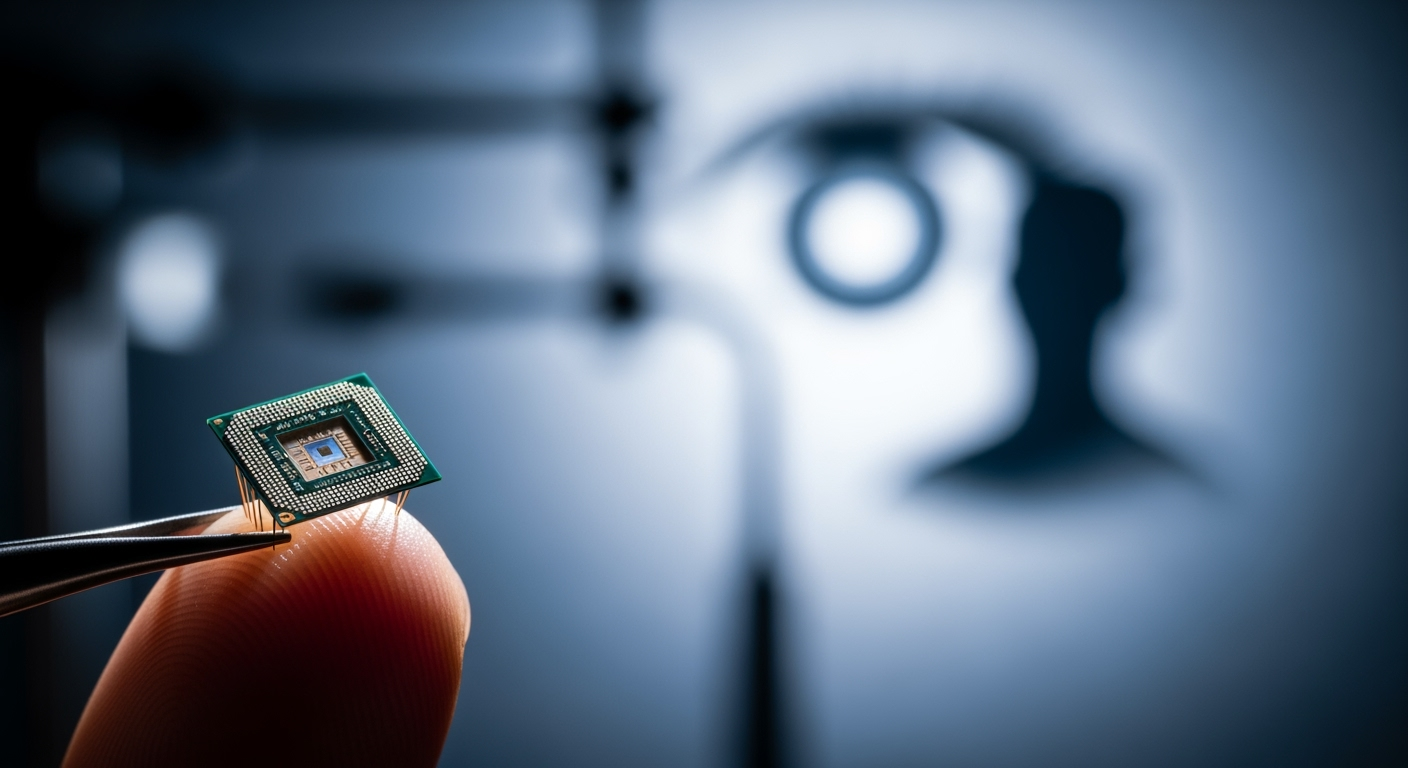Related Articles

Breakthrough Microchip Restores Reading Vision, Offering New Hope for Millions with Sight Loss




Cologne, Germany – A groundbreaking discovery by an international research team, predominantly led by scientists at the University of Cologne and the German Center for Infection Research (DZIF), has unveiled a "super antibody" capable of neutralizing nearly all known variants of the human immunodeficiency virus (HIV). This newly identified antibody, designated 04_A06, has demonstrated unprecedented breadth and potency in laboratory settings and animal models, igniting fresh optimism for revolutionary advancements in both HIV treatment and prevention strategies. The breakthrough represents a significant step in the decades-long global fight against a pathogen that has claimed millions of lives and continues to affect communities worldwide.
The antibody 04_A06 has distinguished itself through its exceptional performance in rigorous scientific evaluation. In extensive laboratory tests, the antibody successfully neutralized an astounding 98.5 percent of over 300 diverse HIV strains. This remarkable breadth of activity positions 04_A06 as one of the most broadly effective antibodies ever identified against the notoriously mutable virus. Beyond in vitro studies, the antibody’s capabilities were further demonstrated in humanized mice—animals engineered with immune systems resembling those of humans. In these crucial experiments, 04_A06 permanently reduced the HIV viral load to undetectable levels, a feat that sets it apart from many other HIV antibodies which often achieve only short-term effects before viral resistance emerges.
The key to 04_A06's extraordinary efficacy lies in its unique structural properties. Analysis revealed that the antibody possesses an unusually long amino acid chain. This elongated structure allows it to access and bind to highly conserved regions of the virus's surface protein—areas critical for infection that are typically difficult for other antibodies to reach and are less prone to mutation. By targeting these essential and stable parts of the virus, 04_A06 effectively overcomes the virus's typical resistance mechanisms, which frequently undermine the effectiveness of other therapies. Dr. Lutz Gieselmann, a physician-scientist at the Institute of Virology and first author of the study, highlighted this aspect, noting that the antibody's ability to circumvent resistance could pave the way for promising clinical applications.
The genesis of antibody 04_A06 lies in the remarkable biological defense systems of a rare group of individuals known as "elite neutralizers." These are HIV-positive people whose immune systems possess an extraordinary, natural ability to suppress the virus effectively, often without medical intervention. The research team meticulously examined blood samples from these elite neutralizers, a group representing approximately one percent of all HIV-infected individuals globally.
From over 5,000 individual B lymphocytes, the immune cells responsible for producing antibodies, researchers generated more than 800 distinct antibodies. Each was then rigorously tested for its ability to neutralize HIV. Among this vast collection, antibody 04_A06 emerged as a clear standout, demonstrating unparalleled potency and breadth in neutralization assays. This extensive screening process underscored the challenge of finding such a powerful antibody and highlighted the invaluable contribution of these elite neutralizers to scientific understanding. The study, titled 'Profiling of HIV-1 elite neutralizer cohort reveals a CD4bs bNAb for HIV-1 prevention and therapy,' was published in the prestigious journal Nature Immunology.
The comprehensive research was an international collaborative effort, primarily spearheaded by the University of Cologne and the German Center for Infection Research (DZIF). Other significant contributions came from the European Research Council and the Bill & Melinda Gates Foundation, reflecting the global imperative to combat HIV. Professor Dr. Florian Klein, Director of the Institute of Virology at the University Hospital Cologne and a senior author of the study, has been at the forefront of HIV antibody research for years, with his team previously identifying other promising antibodies like 1-18, which also showed high effectiveness against a broad range of HIV variants.
The implications of the 04_A06 discovery are profound, offering a potential paradigm shift in how HIV is managed and prevented. Currently, individuals living with HIV rely on antiretroviral therapy (ART), a lifelong regimen of daily medications that, while highly effective in suppressing the virus and preventing its transmission, does not cure the infection and can be associated with side effects. Moreover, ART adherence can be challenging, and viral resistance can still emerge, necessitating continuous research into new treatment modalities.
The broad neutralizing capacity and resistance-breaking properties of 04_A06 suggest a dual potential for its clinical application. As a therapeutic agent, it could offer a new option for treating individuals living with HIV, potentially reducing viral load with greater efficacy and overcoming existing drug resistance. More significantly, its potential as a preventive measure is particularly exciting. Computer models have predicted that a single administration of 04_A06 could offer over 93 percent protection in clinical settings, hinting at its use as a form of "passive immunization." This could act as a crucial protective shield for individuals at high risk of infection, offering a long-acting alternative or complement to existing prevention methods. The prospect of an effective prophylactic antibody brings the long-sought goal of an HIV vaccine closer to reality, even if 04_A06 itself is not a traditional vaccine.
The global burden of HIV remains substantial, with approximately 1.2 million new infections occurring annually and an estimated 630,000 AIDS-related deaths reported in 2024. Against this backdrop, the development of an antibody that can neutralize a vast array of viral strains and resist escape mutations represents a monumental achievement. It offers a glimmer of hope to millions and reinforces the critical importance of sustained investment in infectious disease research.
While the preclinical results are exceptionally promising, the journey from laboratory discovery to widespread clinical use is long and complex. The next crucial step involves human clinical trials to rigorously assess the safety, dosage, and effectiveness of 04_A06 in people. These trials will determine if the antibody performs as effectively in human physiology as it has in preclinical models and whether it can maintain its broad neutralization capacity over extended periods.
The antibody 04_A06 has already been exclusively licensed to Vir Biotechnology, Inc., a biopharmaceutical company, indicating a clear path toward commercial development and eventual patient access. This partnership is vital for navigating the intricate processes of regulatory approval, large-scale manufacturing, and global distribution, ensuring that this potentially life-changing treatment can reach those who need it most. Researchers anticipate that, if successful, 04_A06 could significantly impact the ongoing efforts to control and ultimately eradicate HIV, offering a robust new tool in the global health toolkit.
The discovery of antibody 04_A06 stands as a testament to persistent scientific inquiry and international collaboration in the face of one of humanity's most formidable health challenges. It embodies renewed hope for a future where HIV is not only treatable but preventable, dramatically reducing the personal suffering and societal impact of this persistent virus. This breakthrough from German researchers brings humanity closer to realizing a world free from the threat of HIV.